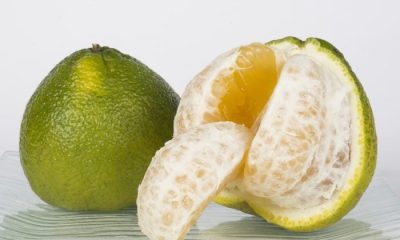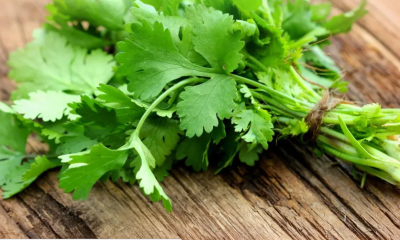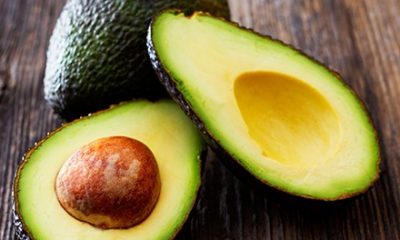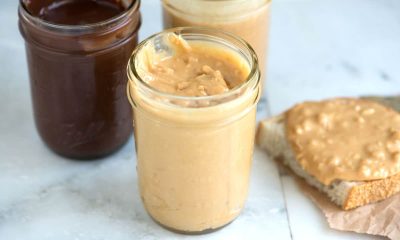Health
Contraindications and side effects of Clexane
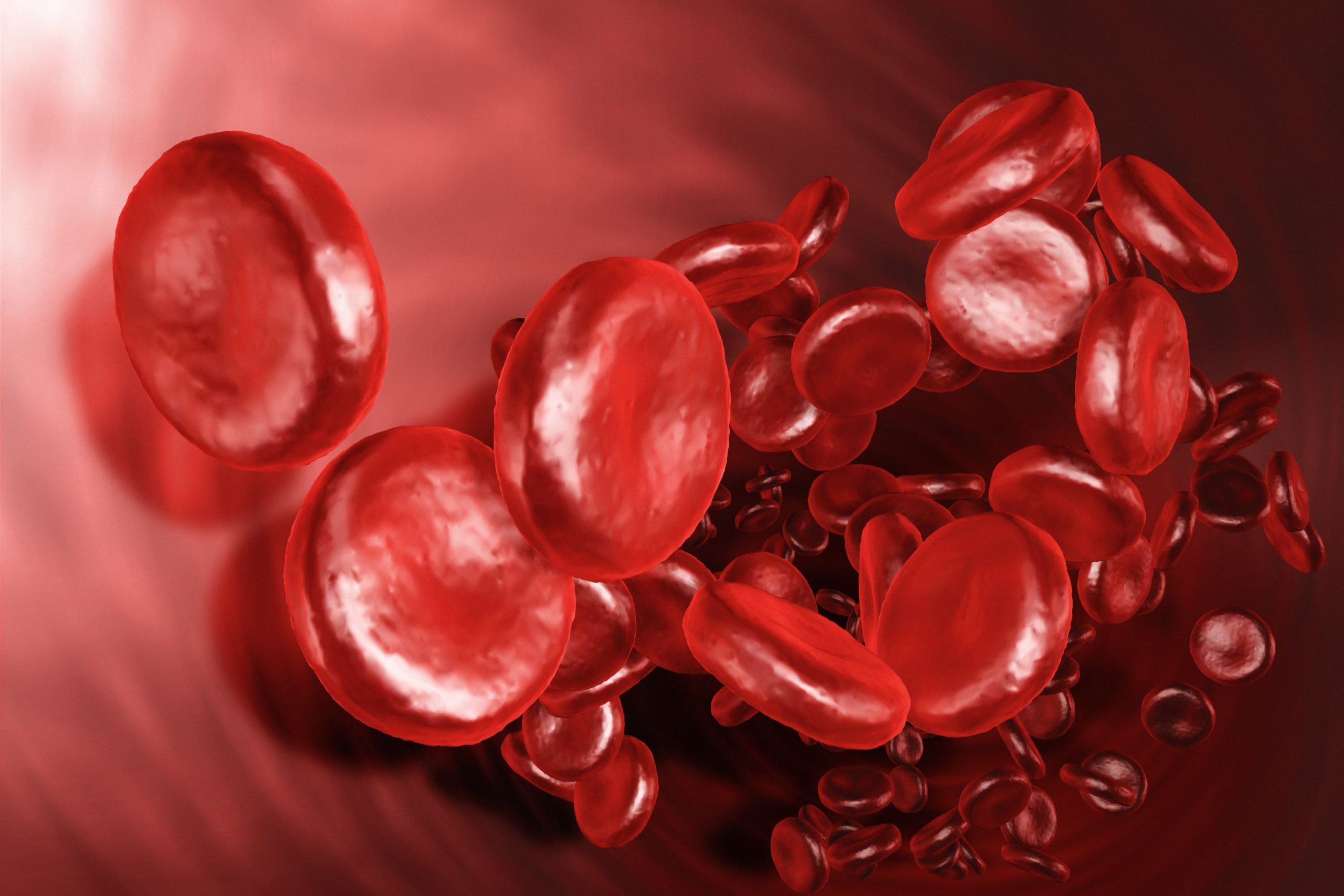
Discover the Contraindications and side effects of Clexane.
This anticoagulant drug is especially used to prevent blood circulation problems.
A drug against diseases of the blood circulation.
Cardiovascular problems are probably together with dementias and cancer some of those that cause the greatest concern to the majority of the population, given the importance for our survival of the fact that the blood circulates normally through our body and that the heart keeps pumping it in the normal way.
And it is a fact that a large proportion of elderly people suffer from some type of heart or circulatory problem.
However, medical advances have allowed the development of drugs that allow treating some of these types of pathology, such as the well-known Sintrom or the drug that we are going to talk about throughout this article: Clexane.
What is the Clexane?
We call Clexane a type of anticoagulant drug widely used in the medical field, in response to complex cardiovascular problems that endanger the lives of those who suffer from them.
As an anticoagulant, its function is to reduce blood clotting, which although it is generally positive since it helps to stop bleeding in specific cases in which this process occurs to a great extent, can make it difficult for the blood to pass. and even provoke a thrombus.
Thus, thanks to the anticoagulant it is possible to keep the blood circulating in a liquid and fluid way and reduce the risk.
Clexane is a drug whose active ingredient is enoxaparin sodium, being one of the low molecular weight heparins (which are derived from non-fractionated ones) that is obtained from the intestines of the pig.
It is a drug whose main route of administration is intravenous or subdermal, and it is marketed as prepared syringes. It is not applied orally or intramuscularly.
Functions of clexane
Clexane is a drug widely used in various conditions in which it can save lives, either as a treatment or even as prevention of some life-threatening situations, all of which are linked to the cardiovascular system.
One of the main indications is in the treatment of deep vein thrombosis, an alteration in which blood clots plug one of the body’s veins, generally directed to the extremities, and which can generate important consequences (including a possible embolism pulmonary).
Also not only during treatment but also as prevention in high-risk cases or to prevent it from happening again in people who have already suffered it before.
It is also used in the treatment of acute coronary syndromes, including some types of angina pectoris and heart attacks, usually as a previous step or in conjunction with other medications, as well as in the prevention of relapses.
Likewise, it is effective in preventing possible thrombi in cases of respiratory or heart failure, as well as in people in a coma or who must remain in a recumbent position (for example, in a long convalescence) and even to prevent possible clots in the case of patients. who must undergo hemodialysis.
It must be taken into account that Clexane can be used at any age from adulthood, including very old ages if necessary.
However, there are not enough studies carried out with minors that allow us to know if it is a safe drug, being a drug that should only be applied to adults.
Possible side effects of clexane
This drug has proven to be very useful and has saved multiple lives since its discovery, but like all drugs, it is not without risks and side effects.
First of all, and as with the rest of anticoagulants, it should be taken into account that the fact that the blood is prevented from clotting causes bleeding of varying severity to arise from any part of the body.
Simple wounds and blows can bleed or generate internal hematomas of great relevance, and it must be necessary to be very careful in this regard. This is the most common secondary symptom.
Likewise, and derived from it, anemia may also appear due to blood loss. Sometimes these hemorrhages can occur at the intestinal, spinal, or intracranial level, being their much greater danger.
The possibility of appearance as well as edema, erythema, alopecia, dermatitis, or even fever has also been observed.
It has been observed that in some cases the level of potassium in the blood increases excessively or even triple the levels of transaminases and other liver enzymes.
More serious are cases of cutaneous necrosis or vasculitis, liver lesions, or thrombocytopenia that can paradoxically generate thrombosis (something that makes it necessary to periodically do a platelet count of the subject).
Contraindications of clexane
As we have seen, despite being very useful, Clexane can also generate dangerous effects, which can put certain sectors of the population at risk. That is why it has various contraindications.
One of these contraindications can be found in the cases of those who have an allergy or hypersensitivity to this drug as well as to other heparins, as well as to its multiple components.
It is contraindicated in people at high risk of bleeding, including people who are going to undergo surgery or are going to have punctures, people with ulcers, aneurysms, or vascular problems in which the walls of the vessels are more fragile.
Also in people with heparin-induced thrombocytopenia. People with high levels of potassium in the blood should avoid it, and it is not recommended in severe kidney failure (with the possible exception of its use in dialysis), as well as extreme caution in the case of liver failure.
It is also not recommended, or at least great caution and control are required, in diabetic patients due to the adrenal alterations it can cause.
Underweight or obese patients should be monitored, as there is a greater risk of bleeding or thrombi.
The use of Clexane in people taking other drugs should be consulted. Finally, and as we have indicated previously since there are no data in this regard, it is contraindicated in children.
Health
9 Benefits of strawberries and side effects
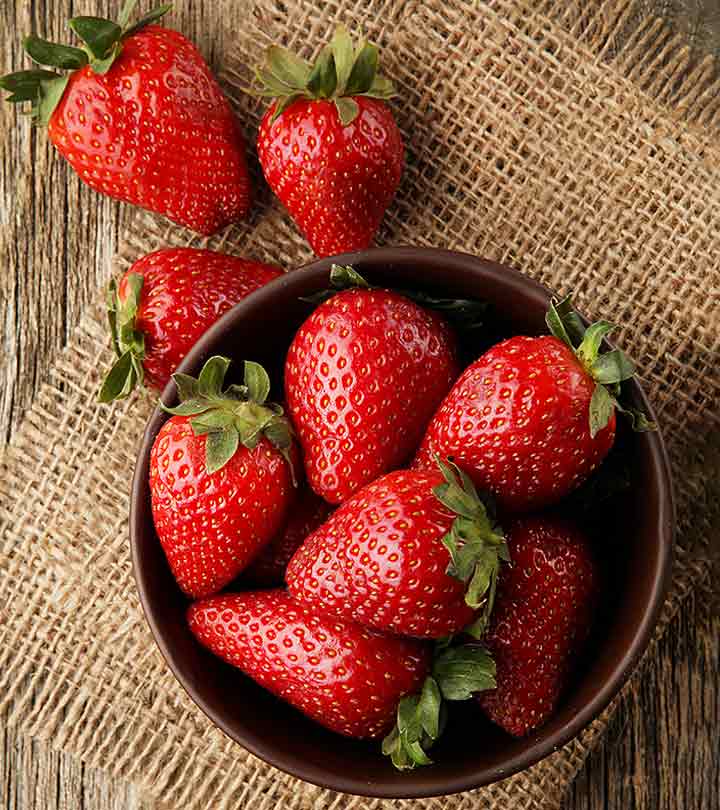
Table of Contents
Health
7 Benefits of Epazote and side effects

Table of Contents
Discover the 7 shocking health benefits of Epazote and side effects.
Epazote, also known as paico or acahualillo, is a widely used medicinal plant, as its essential oils contain vermifuge, antibiotic, digestive properties, and strengthen the immune system.
This plant, whose scientific name is Chenopodium Ambrosioides, grows spontaneously in lands that surround the houses, it has elongated leaves of different sizes and dark green, its flowers are small and whitish.
Epazote can be bought in certain markets or health food stores, in its natural form, in dehydrated leaves, or essential oil.
Because it is considered a plant with a degree of toxicity, it should preferably be used under the guidance of a health professional, in addition to the use of tea from its leaves instead of essential oil, since it contains a higher concentration of potentially toxic substances.
Health Benefits of Epazote
Although epazote is a plant that is widely used in traditional medicine, it has few studies that confirm its properties in the body.
Despite this, several investigations have been carried out with this plant in animals, concluding that it has effects such as:
1. Eliminate intestinal parasites
This is one of the most popular uses of epazote and, according to some human studies, the use of this plant has a strong action against different intestinal parasites, such as worms and tapeworms.
This action seems to be related to the main active substance in epazote, ascaridol, which is similar in efficacy to some antiparasitic drugs, such as Albendazole.
2. Benefits of epazote for immune system
According to research carried out in animals, the use of epazote extract seems to be able to regulate the production of some cells important for the body’s defense, such as macrophages and lymphocytes, strengthening the immune system.
The mixture of epazote leaves with milk is popularly used to help in the treatment of respiratory diseases, such as bronchitis and tuberculosis, due to the union of the strengthening effects of the immune system and expectorants that these substances possess.
Another common use of epazote is in the relief of inflammation, mainly joint problems, such as osteoarthritis. Additionally, the plant also helps relieve pain from inflammation.
This analgesic action was observed in the use of the alcoholic extract of the plant, which seems to act on the NMDA receptors.
4. Benefits of epazote for digestion
Although there are no studies that prove the action of this plant on poor digestion, this is one of the popular uses in which it is used the most.
According to its use, epazote tea can be taken after large meals, to improve digestion, as it could be able to increase gastric juice production.
5. Benefits of epazote for blood pressure
In Morocco, epazote is frequently used to help treat high blood pressure and, according to studies in mice, this property is due to the stimulation of type 2 muscarinic receptors in the heart that slightly decrease the heart rate. , in addition to relaxing the heart muscle.
6. Combat bacterial, viral, and fungal infections
Both the use of epazote extract and essential oil has shown a powerful antimicrobial action that is capable of eliminating various types of bacteria, viruses, and fungi.
7. Avoid osteoporosis
In some investigations carried out in laboratory mice, the use of the hydroalcoholic extract of epazote was able to prevent the loss of bone density and can be applied to prevent the onset of osteoporosis, especially in women who are close to entering menopause.
Is epazote used to treat coronavirus?
A study carried out in 2020 by the Oswaldo Cruz Institute, confirmed the hypothesis that the flavonoids present in epazote may be able to prevent the replication of the new coronavirus, accelerating the recovery and cure of COVID-19.
However, the study was conducted on a computer model and has not been tested in a laboratory, nor living organisms.
For this reason, the dose necessary for treatment is not known, nor are the possible side effects.
For this reason, no health organ recommends the use of epazote as a treatment for COVID-19 until new studies are carried out.
How to use epazote
The most common way to take advantage of the properties of this plant is by infusing its leaves, preparing a tea:
Epazote tea: place a cup of the fresh plant with the seeds in boiling water and let it rest for 10 minutes. Afterward, strain and drink a cup up to 3 times a day.
In addition to infusion, another popular way to use epazote is an essential oil, however, its use must be guided by a naturopath, psychotherapist, or a health professional with experience in the use of medicinal plants.
How to Make epazote tea
Ingredients
8 large stems and leaves of fresh epazote
2 quarts boiling water
Procedure
- Add epazote to boiling water and let simmer for 2 minutes.
- ove from heat and let steep for another 3 minutes.
- Strain and serve.
Side effects of epazote include irritation of the skin and mucous membranes, headache, vomiting, nausea, palpitations, damage to the liver or kidneys, visual disturbances, and seizures, in case of doses higher than recommended or for a time. longer than 3 days in a row.
Is epazote abortifacient?
In high doses, the properties of epazote can act by altering the contractility of the body’s muscles; For this reason, it can have an abortive effect in certain people, not advising its use in pregnant women.
Contraindications
Epazote is contraindicated in pregnant women and children under 2 years of age.
This medicinal herb can be toxic, requiring a medical indication to establish the recommended dose
Health
Contraindications and side effects of Trazodone
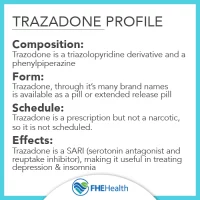
Discover the Contraindications and side effects of Trazodone.
Trazodone is used in a wide variety of disorders, although it is an antidepressant.
Being depression one of the most prevalent mental disorders worldwide and one of the major causes of disability, its treatment is a matter that the scientific community has taken into account for many years.
The suffering it generates requires sometimes immediate attention since it is one of the disorders with the highest risk of suicide and that generates the most pain both for the person and for those around him.
The treatment of depression is carried out from different areas, one of them being psychopharmacology.
One of the drugs used in the treatment of depression is trazodone, which we are going to talk about in this article.
Trazodone: what type of substance is it?
Trazodone is a psychotropic drug classified within antidepressants, substances that generate a neurochemical change at the brain level, causing alterations in the levels of certain neurotransmitters, specifically serotonin.
Among antidepressants, it is part and is the main representative of the group of serotonin-2A antagonists and reuptake inhibitors or SARIs, a type of atypical antidepressant.
This drug was designed in Italy in 1966 under the assumption that depression could be based on the existence of low thresholds regarding the perception of pain and suffering, being the product of the lack of integration of aversive experiences.
Trazodone has proven to be an efficient and effective drug in the treatment of depression, reducing passivity and inactivity, as well as the discomfort and suffering associated with said ailment, and facilitating an increase in mood.
However, in addition to this, it also has an anxiolytic and tranquilizing action.
This substance is considered a second-generation antidepressant, along with specific serotonin reuptake inhibitors (SSRIs), with which it shares part of its mechanism of action, and different dual antidepressants.
Trazodone is sometimes considered to be dual as it has two different effects, although they focus on the same neurotransmission system, compared to the rest, and in addition to an antidepressant effect, it also has calming effects.
How does it work? Mechanism of action of the drug
As we have indicated previously, trazodone is classified as SARI, having a somewhat special mechanism of action among the rest of antidepressants.
Trazodone acts at the serotonergic system level (like most antidepressants) in two specific ways.
In the first place, this substance produces a blockage of brain serotonin reuptake, in such a way that said neurotransmitter remains in the synaptic space for a longer time.
This supposes that it has an agonist effect on the synthesis and maintenance of serotonin at the brain level, it increases its levels (which are decreased during the depression and this is something that correlates with the decrease in the mood).
The aforementioned mechanism of action is the one used by SSRIs, which is why these and trazodone are related and sometimes the latter is included among the first.
However, trazodone has a second effect that differentiates it from other drugs, and that seems contrary to the previous mechanism of action.
And it is also that it acts as an antagonist of serotonin 5-HT2A receptors, preventing or hindering these receptors from being activated.
This second aspect is what makes trazodone have a slightly different profile and effects than other antidepressants.
Regarding its interaction with other neurotransmitter systems, it does not present great anticholinergic effects, something that has made this drug a better option than tricyclics (although the doses must also be regulated) in patients with cerebrovascular and cardiac pathology and dementias.
However, it must be taken into account that it can generate arrhythmias.
It also has a minor effect on the adrenergic (blocking some receptors) and histaminergic systems, something that can lead to the generation of side effects.
Main indications
The main indication for trazodone is obviously, as an antidepressant that it is, major depression. Its effectiveness is also high in those depressions that appear together with anxiety symptoms.
Its clinical utility has also been observed in other disorders in which there are components of anxiety or that are based on it, such as generalized anxiety disorder, Obsessive-Compulsive Disorder, or bulimia.
In addition to this, it has also been observed to be useful for the treatment of substance addictions, being a good alternative for patients with withdrawal syndrome to benzodiazepines, and in the treatment of alcoholism (including the presence of delirium tremens).
Another of its indications is insomnia, which is effectively reduced by increasing sleep time without greatly affecting the deep sleep phase.
Although in general, most antidepressants can have the presence of erectile dysfunction or ejaculation problems as a side effect, this effect does not usually occur in trazodone, which seems to generate an increase in libido and is even used as a treatment indicated in erectile dysfunction.
Finally, trazodone has been applied (largely for its relaxing properties) in some cases of schizophrenia, motor problems such as Gilles de la Tourette syndrome, the presence of manic episodes in bipolar disorder, and the behavioral disorders of Alzheimer’s. although a greater amount of study is required regarding the latter.
On a medical level, it has also been used as a sedative in HIV-infected patients and diabetic neuropathies, as well as in other disorders that cause pain such as fibromyalgia. It has a very slight effect at the level of muscle relaxant.
Side effects and contraindications
Trazodone is a very useful drug that has been used in multiple pathologies and disorders, both mental and medical.
However, it can have undesirable consequences in the form of side effects and is even contraindicated in some situations and pathologies.
Secondary symptoms, sedation, and fatigue, the presence of headaches, nausea, and vomiting, gastric disturbances (diarrhea or constipation), appetite disturbances, sweating, tremors (which may lead to seizures in some cases), are common. ringing, numbness, and vision problems.
In some cases, it can also cause chest and muscle pain, altered consciousness, breathing problems, and arrhythmias. Like other antidepressants, trazodone can also contribute to the genesis of suicidal ideation in the first moments of use.
Although, unlike other antidepressants, it does not seem to generate contributes to improving cases of erectile dysfunction or ejaculatory problems, the use of trazodone has been observed and associated with the appearance of priapism, erections that do not disappear on their own. alone and that cause pain to those who suffer from them (which may require urgent and even surgical treatment).
Although it is sometimes used in dementias and has a lower risk than tricyclics of generating heart problems, it requires a high degree of caution in its use and dosage carefully prescribed by the doctor, since it can generate arrhythmias.
It is contraindicated in patients who have just suffered a heart attack, as well as in those with liver or kidney disease.
Caution should be exercised in subjects with bipolarity because if the medication is not regulated, the consumption of trazodone can cause a shift from depressive to manic phase.
It is also contraindicated in people who have suffered from priapism or have Peyronie’s disease.
Finally, it must be taken into account that trazodone can be excreted in breast milk and transmitted through the placenta so that pregnant and lactating women have contraindicated its use.
-

 Benefits4 months ago
Benefits4 months agoThe Benefits of Joining Gym Lumolog – Improve Your Fitness & Health
-

 Food1 year ago
Food1 year ago10 + Benefits of carrot juice and side effects
-

 Health1 year ago
Health1 year ago50 Super Healthy (And Very Often Cheap) Foods
-

 Health1 year ago
Health1 year ago5 Shocking health benefits of kinkeliba and side effects
-

 Health1 year ago
Health1 year ago15 health benefits of soursop leaves tea and side effects
-

 Food1 year ago
Food1 year ago8 shocking benefits of leek juice and side effects
-

 Health1 year ago
Health1 year ago15 Benefits of lipton tea and side effects
-

 Health1 year ago
Health1 year agoBenefits of guava leaves Sensually



